Aren’t modern board games wonderful? You’ve probably stumbled your way here in a search for some new games to pad out your collection. Maybe some titles that tug at your grey cells a little harder than what you’re used to? That’s great! There are plenty of awesome games for newcomers out there, but what about when they’re ready for the next step?
If you’re wondering where to go next after playing games like Catan, Ticket to Ride, Carcassonne, and the like, then you’re in the right place. We’ve curated a list of terrific titles that offer a smidge more depth than the games you probably already know, while still delivering an evocative and quick experience at the table. The object of any intermediate-level game is to build on principles and mechanisms that you’ve seen in previous games of their ilk, without throwing you in the deep end of the pool with regard to the amount of complexity and rules overhead required by the players.
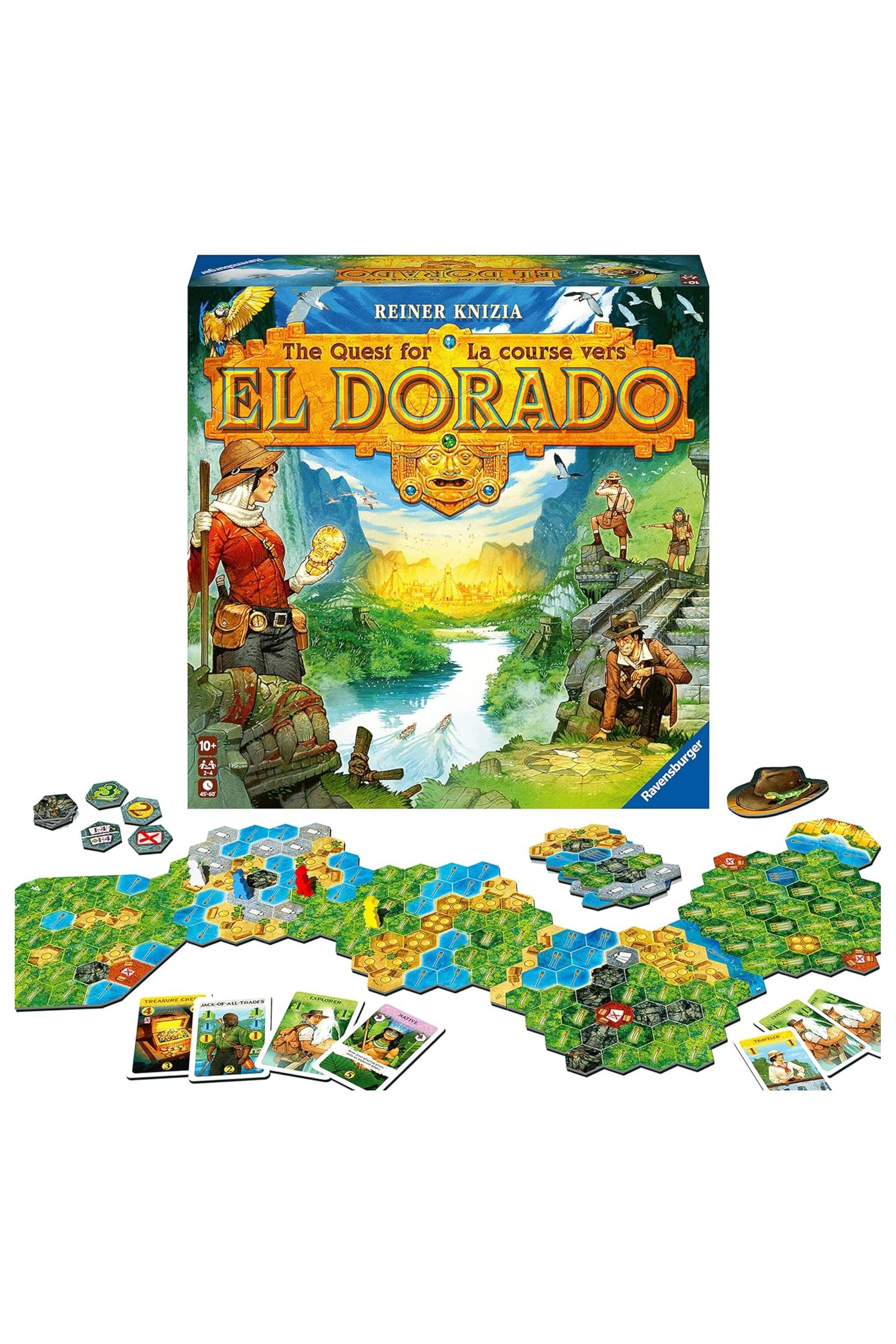
The Quest for El Dorado
Best Race Game
A great option if you enjoy racing games that play quickly.
Get your machete ready as you prepare to bulldoze your way to the golden city of El Dorado in this high-octane race game featuring deck-building.
- The modularity of the boards make for interesting map layouts from game to game.
- A unique take on the deck-building system where available options change based on player decisions.
- A beautiful aesthetic with gorgeous art by Vincent Dutrait.
- If someone gets too far ahead early on, it can be hard to catch up to them.
The Quest for El Dorado is a great choice for anyone who’s experimented with deck-building games like Dominion, but is looking for an extra flourish. You’ll get that here. Featuring a light amount of deck-building, The Quest for El Dorado pits players against each other in a heated race as they’re all plowing toward the golden city of El Dorado. Naturally, the first person to get there instantly wins.
The main hook of this design is that your cards have multiple functions, either to act as movement that you’ll use to steer your adventurer closer to the golden city, or as currency that you’ll use to purchase stronger cards, which will eventually help you traverse rougher terrain throughout the game. It’s a clever twist on deck-building that doesn’t surround you with too many options on your turn.
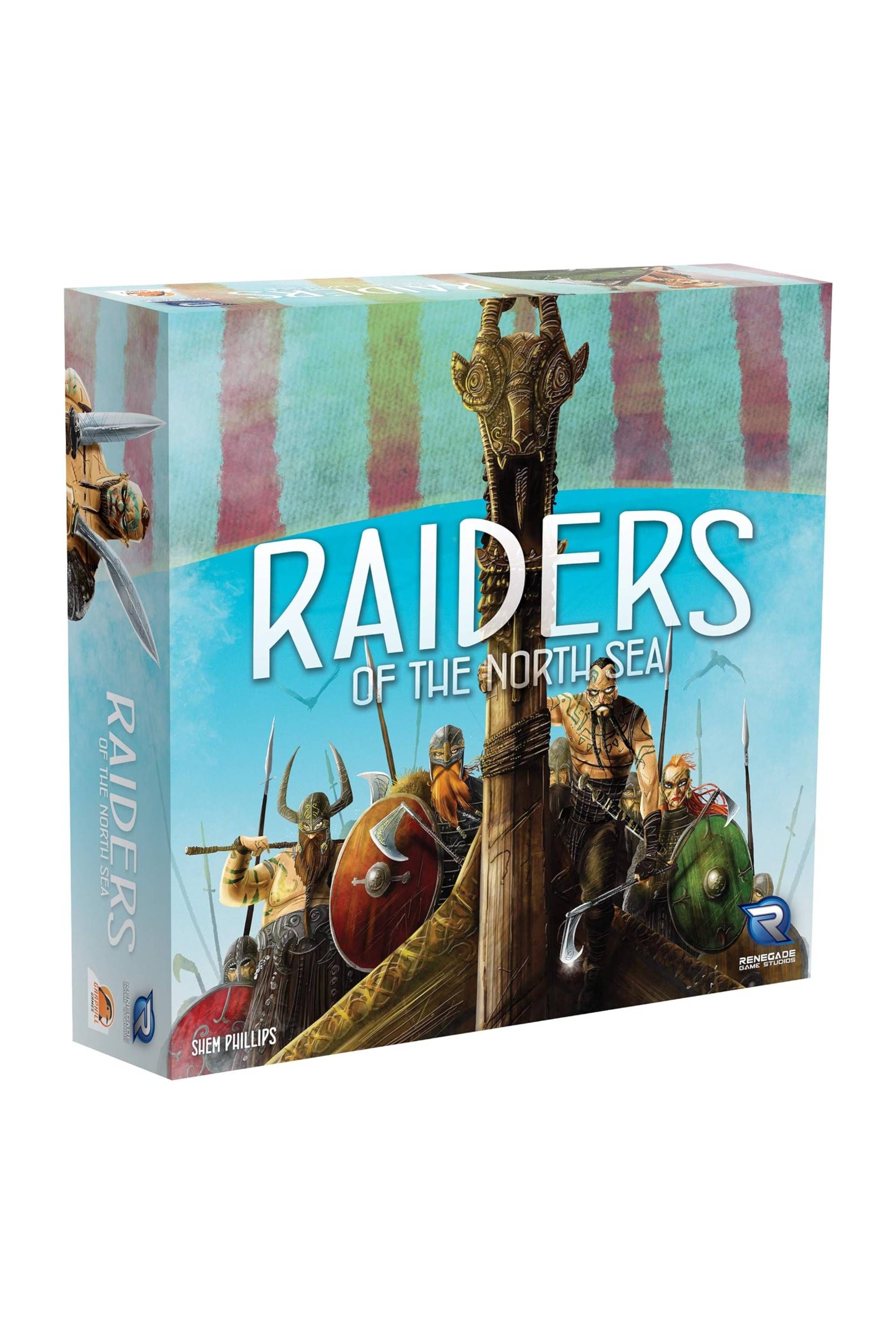
Raiders of the North Sea
Best Worker Placement Game
Raiders of the North Sea looks heftier than it is, but it’s a clean design that doesn’t overstay it’s welcome at the table.
Return to barbarism in Raiders of the North Sea, an extremely fluid worker placement game that handles the topic well while also keeping choices simple from turn to turn.
- Turns are super simple and super fast.
- Offers a lot of depth in decisions from the cards in your hand.
- Inconography and board design blends well with the gorgeous art by the Mico.
- If you’re not into the idea of pillaging and raiding, you might want to skip this one.
- Strategies can feel repetitious after too many plays.
Raiders of the North Sea packs a huge punch in its relatively short playtime of about 45-60 minutes. In this game, players compete as rival clans of vikings, each trying to pillage and loot more spoils than their opponents. At first blush, the game will appear to have a bit going on, but once you realize the array of decisions on your turn is actually quite minimal, it becomes a much more contained worker placement game that gives players just enough freedom to have a good amount of player agency without flooding them with too many things to think about each turn.
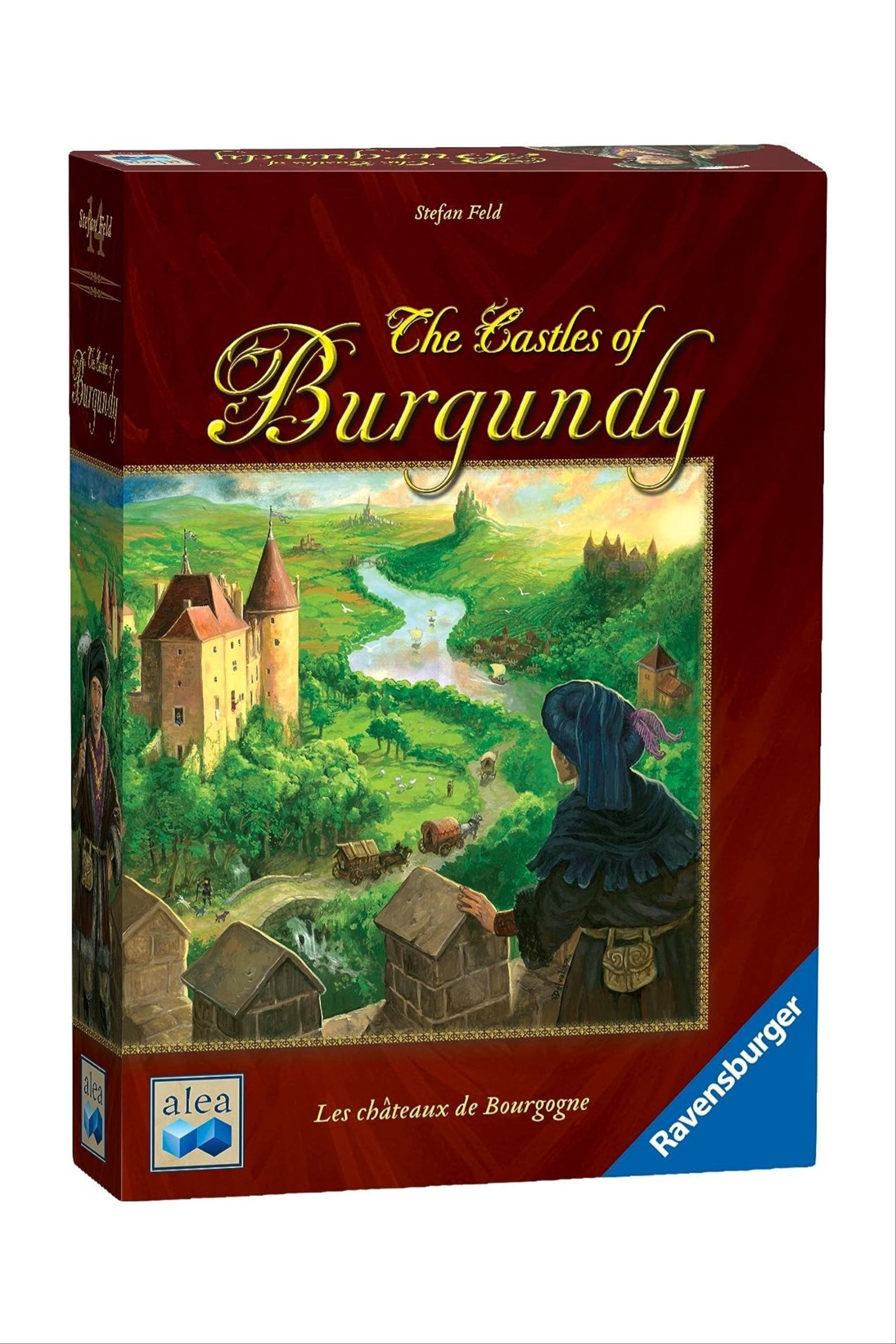
The Castles Of Burgundy
Best Dice Game
The Castles of Burgundy is unassuming, but the gameplay within is nothing but substance.
The Castles of Burgundy eloquently blends aspects of tile laying with dice rolling in a way that gives players a bit to think about on their turns without being too taxing.
- A great application of traditional D6’s
- Puzzly choices each turn as you fill out your board with structures.
- Every turn offers huge amounts of opportunity cost that makes each choice important.
- Little direct player interaction
The Castles of Burgundy is a modern masterpiece, and is an easy choice to make for anyone seeking to expand their portfolio of games. With the familiar use of regular six-sided dice, players simply use these dice to either choose blueprints for new buildings or to construct within their humble, vacant duchy.
Every structure in the game comes with a special ability that boosts the economy or points for the player who built it, offering a lot of strategic opportunity with each turn. If you’ve enjoyed games like Catan, you may enjoy Castles of Burgundy as a slightly meatier alternative that leverages the spacial elements of Catan with the input randomness of dice rolls.
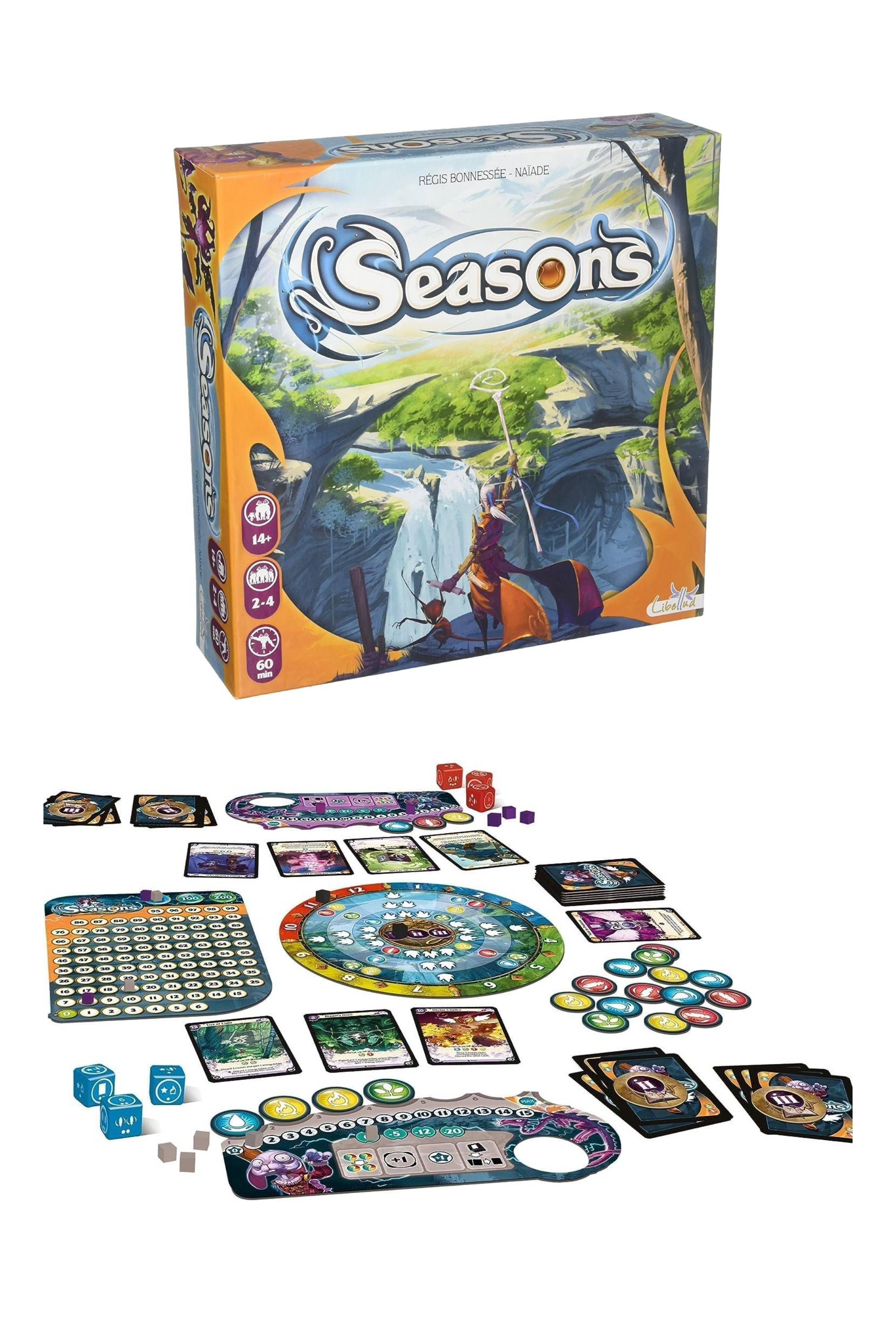
Seasons
Best Card Combo Game
Seasons is whimsical and smart, with an emphasis on card combos.
Seasons is a colorful, zany little game where powerful mages are competing to be the most extravagant spell caster in the realm. It features dice drafting and playing cards to pull of cool tricks to impress onlookers. Will an innocent family get eaten on occasion? Who knows?
- A clever game-end timer where the players decide how quickly the game ends.
- Satisfying card play that rewards patience and foreplanning.
- Luck of the draw can be swingy.
Season is sadly more underrated than it ought to be, but it’s a splendid game for expanding on the drafting mechanism found in 7 Wonders. At the beginning of the game, there is a brief prelude where players will draft nine cards for their book of tricks they’ll aim to pull off during the game. After that, the real game begins, where they’ll then roll and draft dice from the center of the table that correspond to each of the four seasons in a year.
The game uses a neat system of elemental energies (air, water, earth, and fire) that players will use to pay for the spells in their hand. And as you might imagine, different energy is hard to come by in different seasons, which makes planning strategies in Seasons a huge part of the fun.
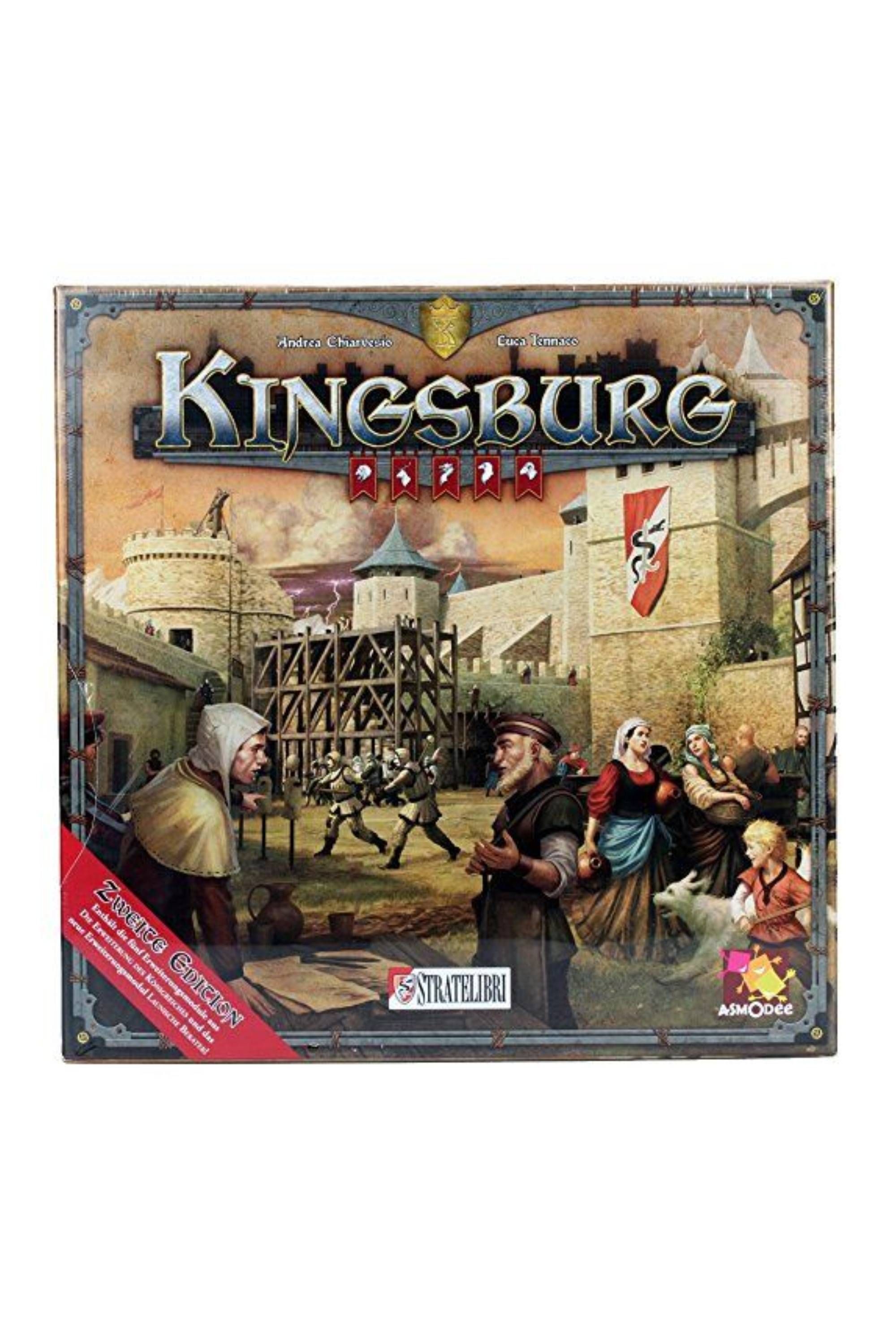
Kingsburg (Second Edition)
Editor’s Choice
A great hybrid of dice rolling, action selection, and resource management.
Kingsburg excels on multiple levels, giving players options with dice that they roll each round, and a compelling decision tree of structures they’ll erect to bolster their kingdom against impending invaders.
- Simple turns with a big emphasis on multi-turn strategies.
- Clever use of dice as workers.
- Climactic reveals at the end of each round as players fend off hoards of monsters.
- Low dice rolls each round may allow you to take a turn before others, but it can’t offset getting less to do on your turn.
Kingsburg was one of the first games to marry dice with worker placement, giving it an ounce more to think about on each turn given the different possible combinations of the dice you have available. Players will all have three dice that they’ll roll simultaneously at the start of each round. They’ll then take turns using single dice or pairs of dice to influence different characters in the kingdom, who will return the player with resources they can use to construct buildings.
These buildings will be used to help make future turns more efficient, help the player fight off invading armies, and, of course, procure victory points for the game’s end. It’s a clever and clean system that isn’t too much to manage for anyone looking to try something new.
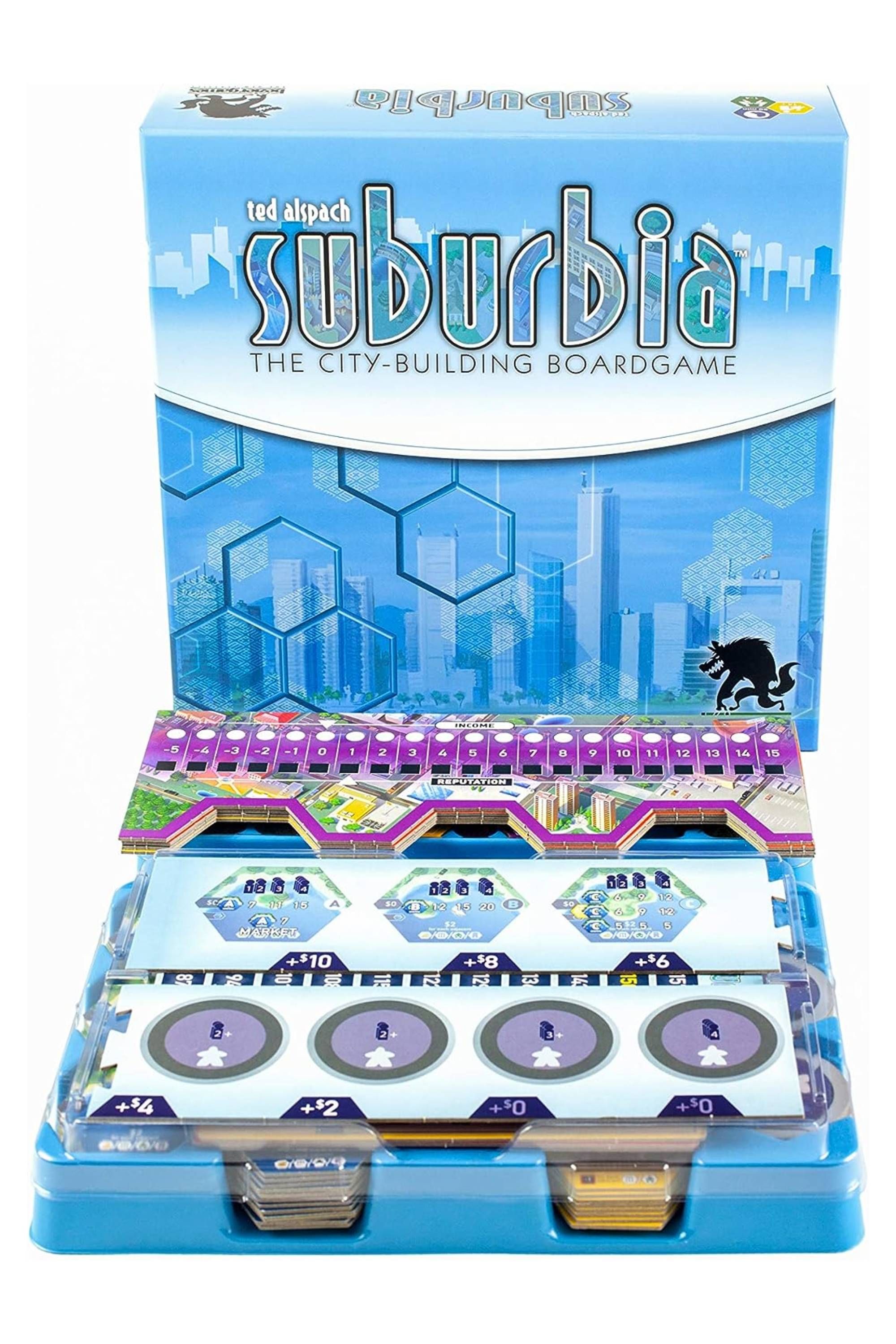
Suburbia
Best City Builder
If you’re into city sims, you’ll want to give Suburbia a look.
Suburbia is a game that starts off meager, and gradually expands into more and more complexity. But it does so in a way that players can digest easily.
- The hexagonal tile placement works well in the context of the theme.
- Turns are quick.
- At the end of the game, you feel like you build something epic.
- As the game progresses, there can be a lot of simultaneously occuring effects that can be hard ot keep track of.
Suburbia plays off of games like Carcassonne, where players will acquire different buildings in each turn and place them in their city district. The goal is to amass the most money, which they’ll gain exponentially as they introduce different types of commercial, industrial and residential buildings into their district.
This is a game where the numbers (both in money you begin with and structures to manage) start off really minimal, but gradually escalate, which makes it more approachable than other heavier games out there on the same topic.
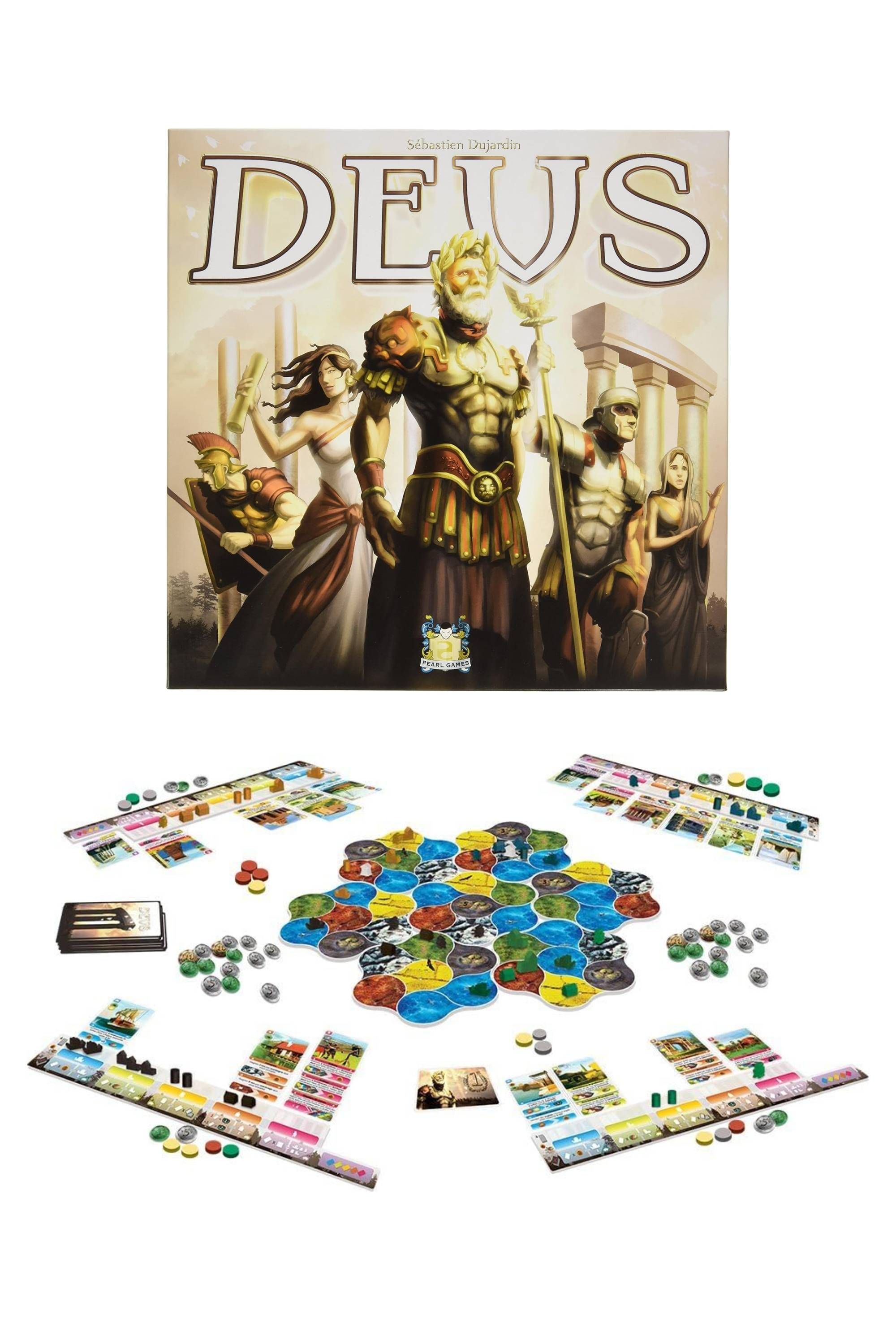
Deus
Best Intermediate Game
Deus is a light game, while still offering a lot of options.
Deus borrows many elements of famed Catan, but gives players more agency through a wider range of options. It offers different strategic avenues through the clever use of cards.
- Resource management is tight, without being too constrictive.
- The game gives players a way out of getting blocked into a corner.
- The card tableau-building is innovative and enjoyable.
- Aethetics leave a bit to be desired.
Set to the theme of old-world civilizations, Deus is a hearty choice if you’re looking for a game with a little more meat on the bones. Deus smoothens many of the rough edges with Catan that many players learned to tolerate over the years. If you’re a fan of Catan, and are looking for something more, Deus is a great alternative for its iterative familiarity while also breaking the mold of a lot of the things that bogged Catan down. For instance, in Catan, it is very easy to get cut off.
In Deus, players can expand into different spaces, or simply focus their strategy around building more into the spaces they’re already in! While the list of comparisons could be long, the intent here is to illustrate Deus as a more-involved iteration of Catan that substitutes dice rolling for hand management of cards. Apart from its aesthetics, which to many may appear lacking, the game is elegant and rich in strategy.
FAQ
What is an intermediate board game?
An intermediate board game is generally a notch above family-style games in terms of complexity. While a family game might be approachable to practically anyone, an intermediate game carries more depth which may be better suited for players with a little more appetite for more rules and moving parts.
What makes a game complex?
In most cases, it’s the number of options players have to choose from on their turn. However, there are other factors that impact a game’s complexity, such as the level of involvement one player has in another player’s turn, and how many elements of the game change from round to round.
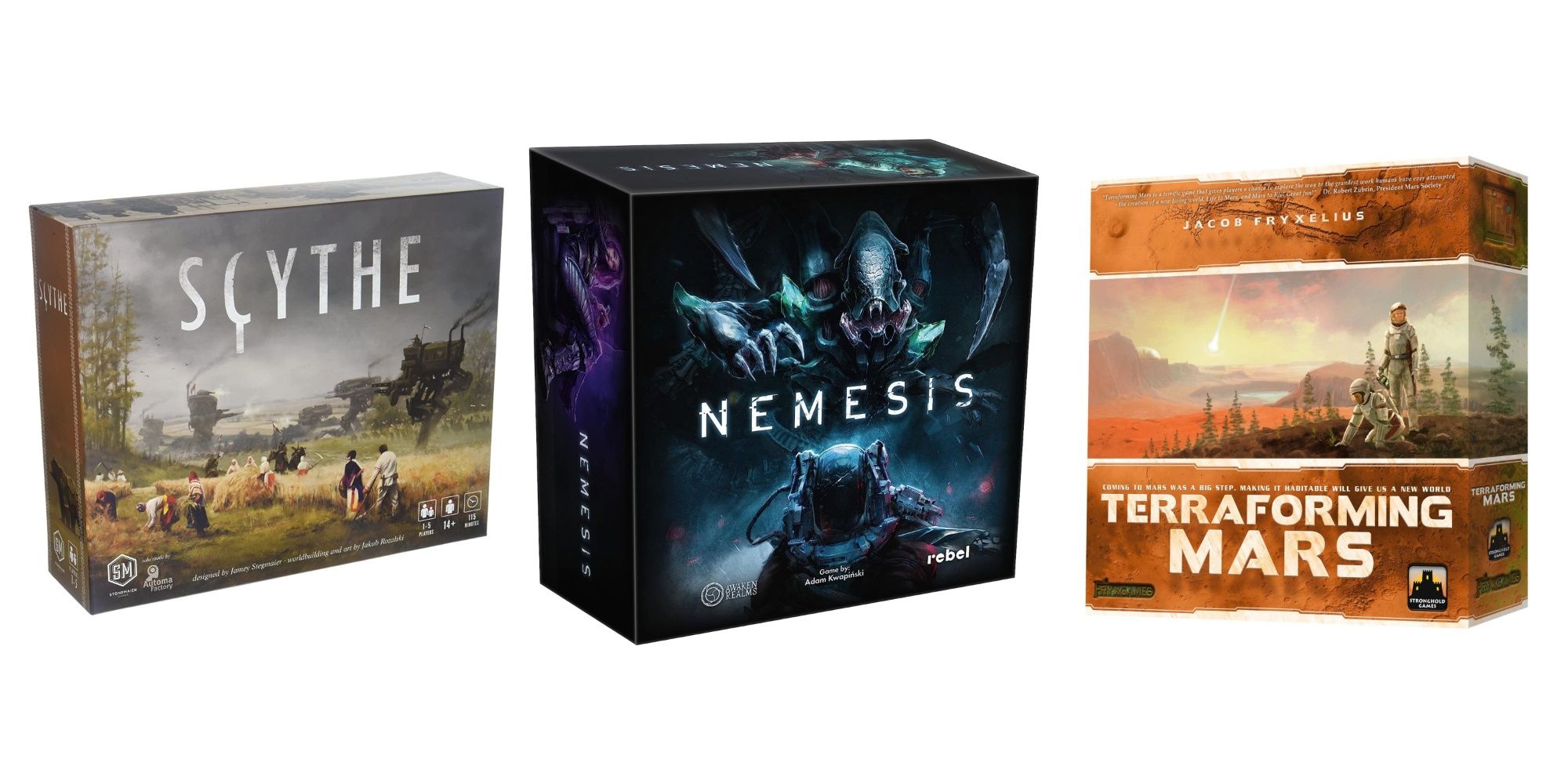
The Best Board Games For Solo Players In 2023
You wouldn’t think it, but a board game just for you can be just as fun as one you play with friends.
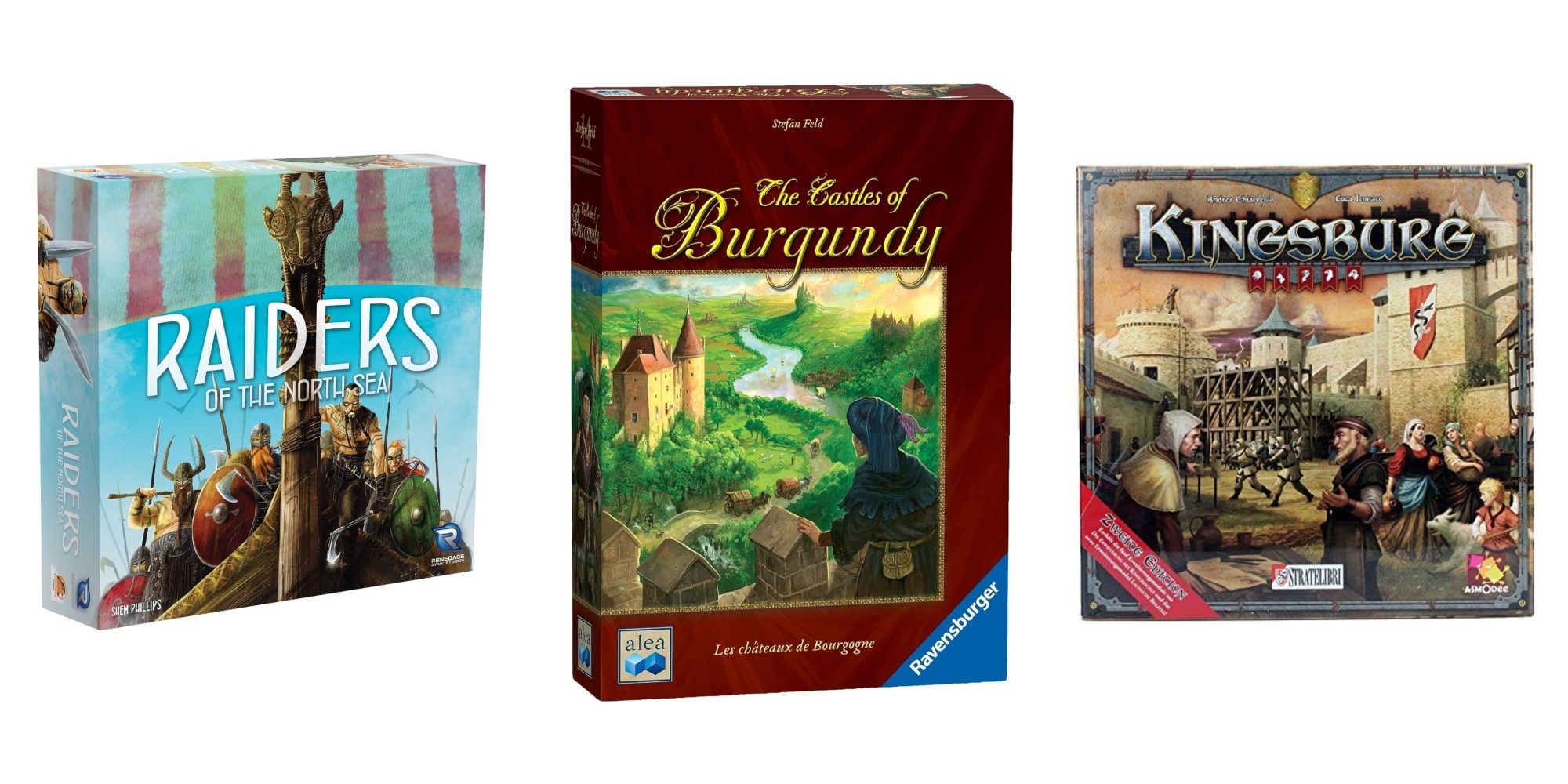

Leave a Reply